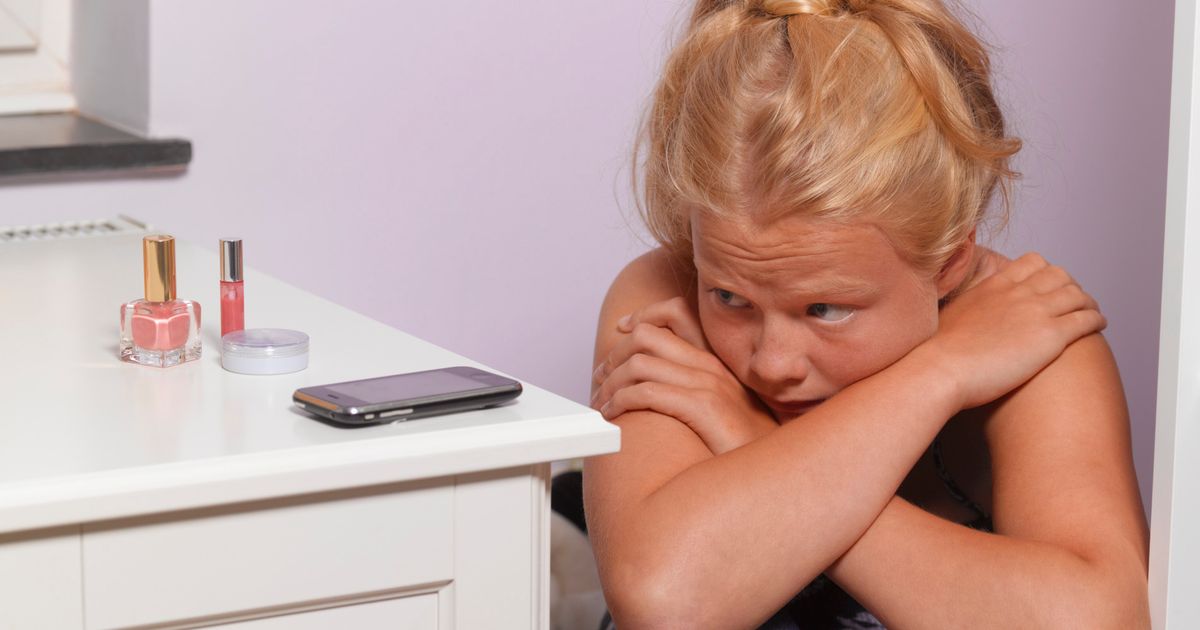How Social Media Affects Body Image
In recent years, the advent of social media platforms and the pervasive use of smart devices has dramatically changed how we relate to one another. Many of these changes seem to be for the best, as it is now possible to cheaply and quickly communicate with our friends and family across any distance, enabling everyone to keep in touch in ways that were previously not possible.
Social media also enables us to connect with individuals many never had the opportunity to get to know in the past. At the same time, there have been serious concerns raised about the effects of heavy social media usage, especially on developing children.
Selfies

One of the central worries parents have drawn attention to is the way in which social media negatively affects children's body image. This problem impacts both boys and girls, though it is especially acute for young girls. One of the norms that has sprung up in recent years is the regular posting of selfies on social media platforms. It has become increasingly common to take pictures of oneself working out, preparing food, hanging out with friends, or working on assignments for school.
Taking selfies has become one of the most popular ways for individuals to share their experiences online, and on its own can be perfectly benign. However, with the widespread desire to fit in with their peers, some individuals can feel like an outsider if they do not participate in the practice. Thus, this new norm winds up putting tremendous pressure on young boys and girls to conform and post their own selfies to their profiles, which is where problems begin to arise.
Likes, Comments, And Followers

Part of the way social media users evaluate their social status is by looking at their number of likes, comments, and followers. Posts with more or fewer likes are seen as being more or less valuable accordingly, and from here it is only a small step to someone valuing themselves based on whether their posts get more or less likes. This ratchets up the pressure to post personal images on social media websites, in the hopes of seeking validation from peers.
For those users who don't receive that validation, the effects on their self-confidence can be devastating. When children, especially girls, don't receive many likes for their pictures, they may start to assume this is due to their failure to live up to the standards of beauty held by their peers. The facts illustrate the seriousness of this dynamic. A recent survey from Common Sense Media found twenty-two percent of girls reported feeling bad about themselves if their photos are ignored, twenty-seven percent reported feeling stress about their appearance in online photos, and thirty-five percent expressed worries about getting tagged in unattractive pictures.
Comparing Self To Others

When insecure children spend too much time comparing their looks to others online, they risk sometimes becoming fixated on the appearance of exceptionally attractive peers or celebrities, a distortion furthered by the media. For example, according to Common Sense Media, roughly eighty-seven percent of the lead female characters on television shows geared toward teenagers were under the average weight for their age. Matters are made worse by the growing ability to modify one's pictures before posting them online, presenting an unrealistically polished look to the world. As a result, insecure users often develop unrealistic expectations for how they should look.
Unfortunately, the digital format of social media platforms lends itself to frequently looking at one's own social feedback and comparing it to others'. When young individuals see that the posts of some of their peers consistently gets more praise and attention, their insecurities about their social standing can worsen. Additionally, if they perceive this particular peer as being more attractive, it can further cement their insecurities about their looks.
Cyberbullying

The presence of impersonal and anonymous comments also makes social media users vulnerable to cyberbullying, which can compound the problems we've already covered. Some individuals can be shockingly cruel in their online interactions, and when cyberbullies attack children who are already insecure, the experience can be traumatic. Cyberbullying sometimes preys on a girl's insecurities by unfavorably comparing her to others, further reinforcing the notion a person's value is determined by his or her looks and ability to get positive feedback from social media followers.
One study found twenty-one percent of children between twelve and eighteen have been the victim of online bullying. The increased pressure from cyberbullies can be so intense that some girls are lead to develop eating disorders such as anorexia or bulimia. According to the National Institutes of Mental Health, roughly 2.7 percent of children between the ages of thirteen and eighteen suffer from eating disorders. This number jumps to 3.8 percent if you only look at the statistics for adolescent girls. These conditions can create significant health risks, with many cases requiring intensive therapy and work to recover from.
How Can Parents Help?

We've seen how serious body image issues can be. But how can parents help? One step parents can take to help their children avoid or minimize some of these harmful consequences of social media platforms is to have open conversations about the dangers of these services. It is important to teach children their personal worth is not determined by the number of likes and followers they attain on social media websites.
Another important way parents can help their children develop a healthy body image is by teaching their children about how individuals and celebrities are misrepresented in media. If children are more aware of how the media inaccurately portrays women, for example, they may be less likely to accept the images they see as setting an appropriate expectation for how they should appear. Finally, parents should encourage their children to moderate their time spent on social media. While this new form of communication offers many exciting opportunities, it is important not to let it completely displace face-to-face contact and close private relationships.